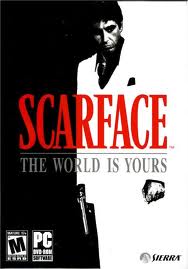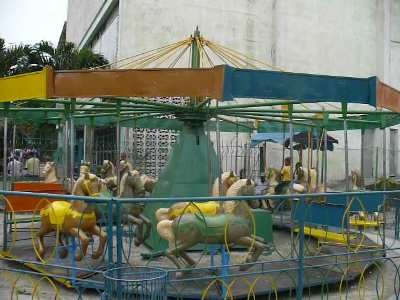The realities imposed on us during the time of the “Special Period”*[2] and the foreign investments, brought with them new forms of expression that involved part of the Cuban society. Those nationals linked to the tourism, to the diplomatic community and those working with foreigners and their currency or the exchange market, integrated into their language words such as “sir, madam, or miss” to address someone — As if the “comrades”*[3] of so many years, men or women, had emigrated — and other Anglicisms such as “llámame para atrás” (call me back) or verbal crutches such as “tú sabes” (you know); and the spanish ones, “¿vale?” to agree or assent to something, the “gilipollas” (idiot) in substitution of the ultra-Cuban “comemierda“*[4] (shiteater). I didn’t find an etymological dictionary to check whether or not the origin of this word is Cuban, but it is an image that reflects how much identified we are in our slang with such vulgarism. Also, due to the presence of Spanish businessmen and tourists in recent years, and our interaction with them, we acquired additional words of erotic content, that I prefer to avoid here.
The foreigners, who travel to Cuba as tourists, are seeking for “chicas“*[5] and “chicos” *[5]; not muchachas*[5] or muchachos*[5], young people, women and men to get involved with. People around the world have their own jargons and language traits and their customs which define them as a nation, even if we share the same language. The inclusion of foreign expressions and practices in a sector of our society is not a local phenomenon that has political overtones, as two friends argued recently, they are due to globalization, which is connecting us worldwide in various spheres of life; the internet, which allows us to interact in real time with many places of the world and to the opening to foreign tourism in our country after nearly three decades of staying stuck in snow crystals incubators “for better handling,” as the wolf of Little Red Riding Hood would say.
Therefore, it doesn’t worry me too much that our language is nuanced with foreign words. I can listen a youth calling another “brother”, assenting with a “that’s ok”, or leaving with a “see you…”, that does not wake me up from my dreams; what really concerns me is the frantic emigration with which we Cubans have been naturalized as world citizens. That’s more important and significant that the locutions of our vernacular spanish. Let’s leave those misgivings to more conservative specialists.
I disapprove of false behavior, such as those who, in their environment, uncork their repressions and unleash their own churlishness in their element and in others, laminate in plastic their attitudes and with this label places, as if they ignore that we should behave in an educated way, regardless of where we are.
That’s how we, a large portion of the Cubans living in our country, are going these days: the Penelopes weave their dreams — with imported yarn — while waiting for the democracy ship; the believers in religions of African origin don’t offer drums to their African pantheon ‘orishas’*[6], now they revere them using violins*[7] more often than before; and the majority still waits in frustration because “a malicious man” seized our rights and our freedom. With the permanent production chain of poverty that most Cubans inherited, they leave us also with the sad reality of the everyday ordinary fellow citizen who, to offset the economic hardships, is adorning his language with foreign gems to experience at least how the vocabulary is “being enriched.”
*Translator’s notes:
(1)- Gilipolladas is a Spain’s bad word meaning foolishness , idiocies, therefore a gilipollas is an idiot , a fool and can be use as an asshole etc…
(2)-The special period was the name given by the Cuban government to the economic situation after the fall of the USSR and the eastern Europe socialist governments.
(3)- Comrade was the usual way to address another person in Cuba since 1959.
(4)- Comemierda is a Cuba’s bad word for fool, idiot, asshole, etc.. although literally means shit eater.
(5)- chicos, chicas, muchachos and muchachas all have the same meaning: young men and women, but in Cuba muchachas and muchachos are used.
(6) An Orisha is a spirit or deity that reflects one of the manifestations of Olodumare (God) in the Yoruba spiritual or religious system.
(7) violins are played to revere Oshun, who has been syncretized with Our Lady of Charity , Cuba’s patroness.
Translated by: Adrian Rodriguez
July 20 2011
 It is true that José Martí founded a political organization, the Partido Revolucionario Cubano (Cuban Revolutionary Party), Fidel Castro founded the Partido Comunista de Cuba (Cuban Communist Party), and many people in our country and the world, just like them, have maintained their membership in the different institutions that they have erected so that from them they can work towards and develop their respective proposals. Notwithstanding, they disrespect or do not know the rights of the rest of their compatriots to legally create organizations and launch them towards their Motherland’s paths of history for the benefit of the nation and the interests of all her children wherever they might be.
It is true that José Martí founded a political organization, the Partido Revolucionario Cubano (Cuban Revolutionary Party), Fidel Castro founded the Partido Comunista de Cuba (Cuban Communist Party), and many people in our country and the world, just like them, have maintained their membership in the different institutions that they have erected so that from them they can work towards and develop their respective proposals. Notwithstanding, they disrespect or do not know the rights of the rest of their compatriots to legally create organizations and launch them towards their Motherland’s paths of history for the benefit of the nation and the interests of all her children wherever they might be.
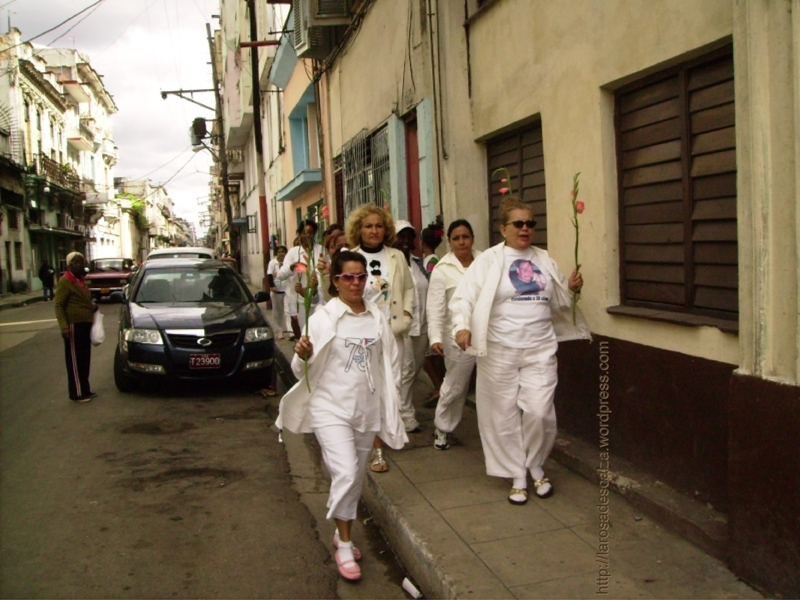

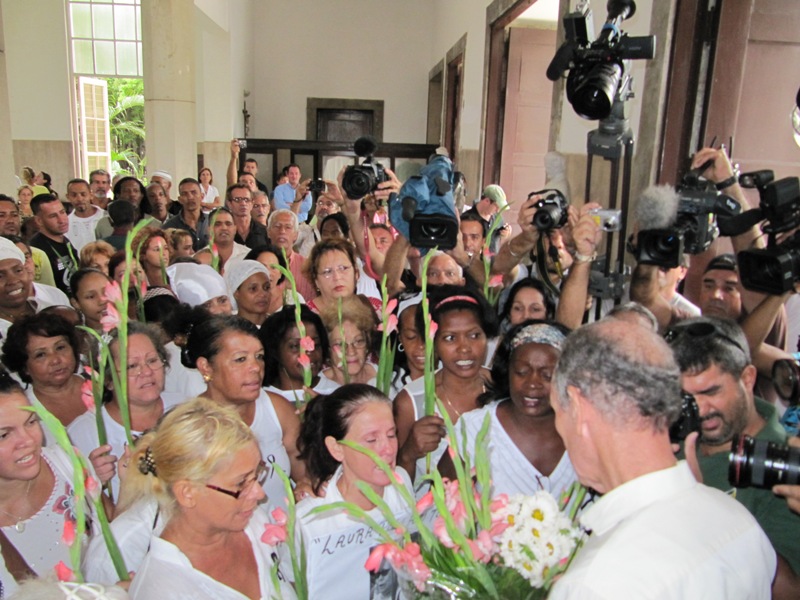
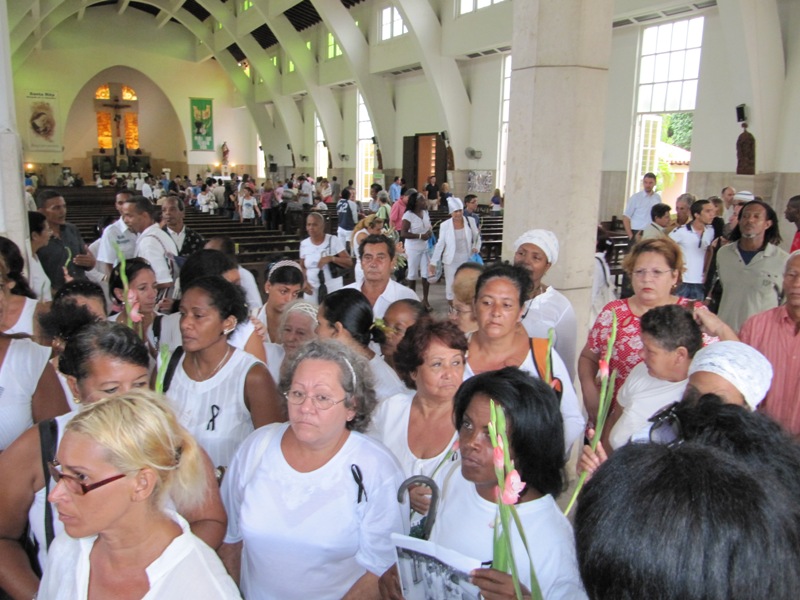
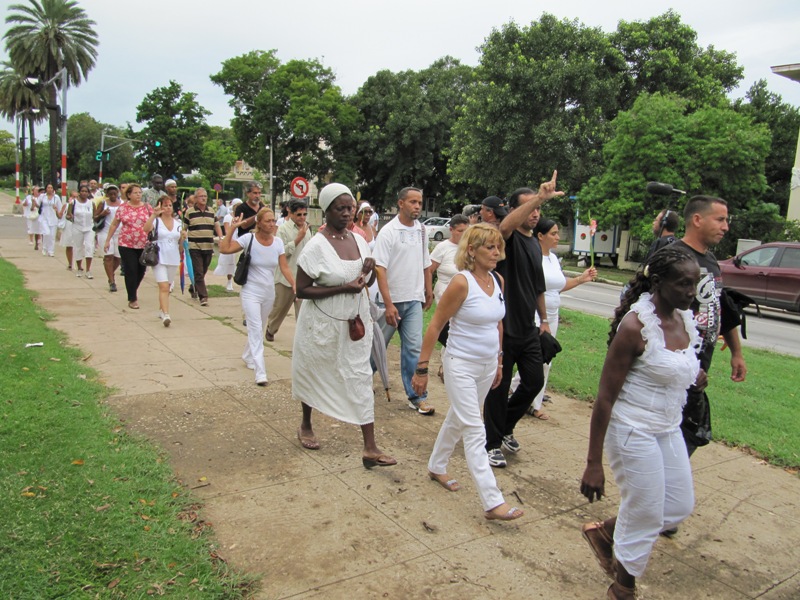
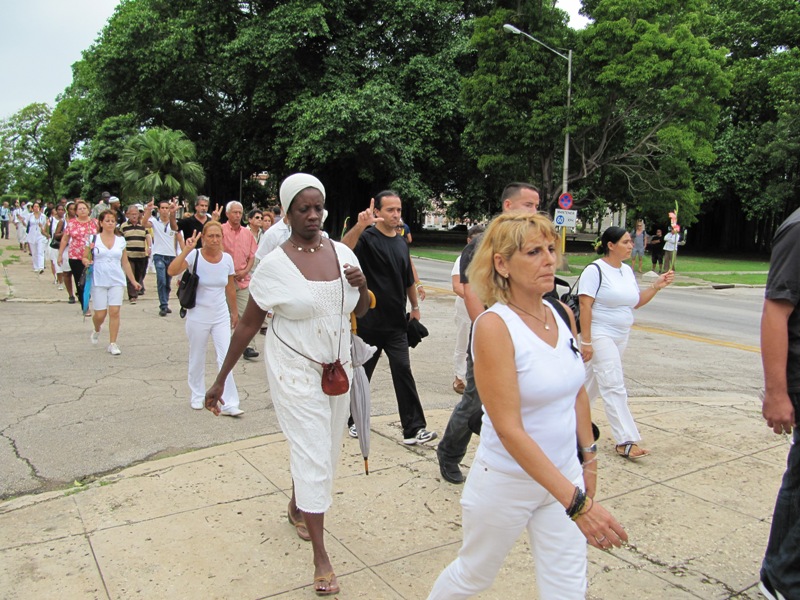
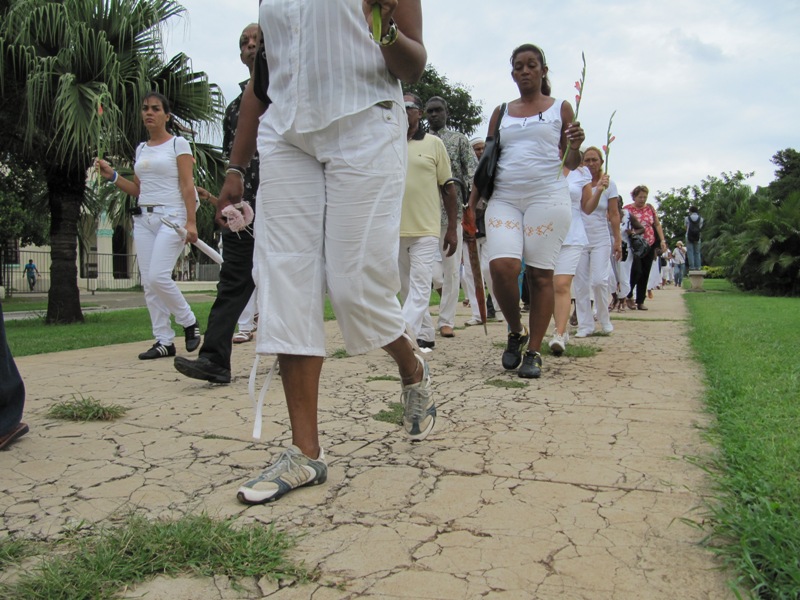
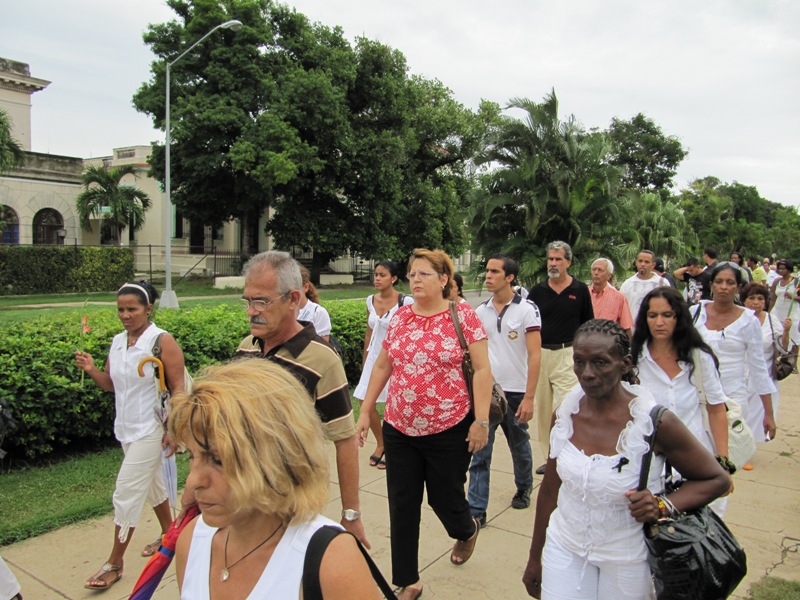



 In Cuba, we often visit homes where their residents hang, on the inside of the main door, the image of an eye. It is a symbol associated with African-originated religions, such as one that shows a tongue traversed by a dagger.
In Cuba, we often visit homes where their residents hang, on the inside of the main door, the image of an eye. It is a symbol associated with African-originated religions, such as one that shows a tongue traversed by a dagger.